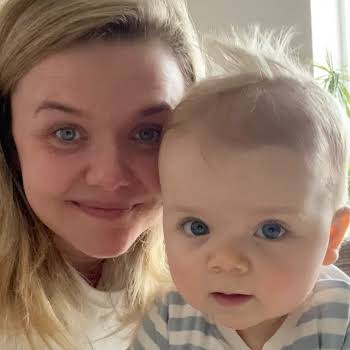By Sinead Brady
14th Jan 2018
14th Jan 2018
It’s all or nothing. You are either a success or a failure. You feel either perfect or worthless. Things only go brilliantly or desperately wrong for you. Something is simply right or wrong. There is no grey area in your life, things are either black or white.
A perfectionist, even though you don’t think so, you set unrealistic expectations for yourself where any outcome less than 100% equates to 0%. Unless you can do something to the highest of standards you beat yourself up for not being strong, determined or able enough. This type of thinking often paralyses your ability to make positive progressive change.
But what if you could achieve personal or professional growth by living in the grey, messy murky waters where you build success on the momentum of small incremental changes? Changes that create confidence and build courage.
What if this increased the likelihood of you making positive, progressive choices that are aligned with your overall goals and this had a positive effect on other aspects of your life?
Studies show that positive change in one area of your life breeds positive change in others, even when these areas are unrelated. We also know that it takes three weeks to break a habit and three weeks to make a habit. So to expect change overnight with no blips or mistakes holds you ransom to pretty high standards that may actually be blocking rather than feeding your potential.
Luckily, there is a possible solution to help you overcome your all or nothing thinking.
It is a rigorously researched formula that, if you follow, could bring the change you yearn. The change might be professional or personal, but the strategy is always the same. Backed by science, the key to this amazingly simple strategy is to focus on motivation, ability and trigger. The man behind it is renowned Stanford professor BJ Fogg. According to him, sustained behavior change comes when you are intrinsically motivated, have the ability to complete the task/action and you have a stimulus that moves you from thought to action. The Fogg Method breaks change down into three simple steps and may hold the final part of the puzzle which helps you unlock your potential in 2018.
Get specific, really specific
Once you have made a decision about what you want to do, change, achieve or move towards, it’s time to get super specific about the details of it. This is without doubt really hard but the more specific you are the more likely you are to crack the code of change.
Commit to the tiniest of steps
Pick the smallest possible step that directs you towards your goal. In fact, make a step so small that it seems ridiculous. If your identified step is so ridiculously easy it seems crazy, the chances are it’s easier to do it than not, irrespective of how little or much motivation you feel.
Find a trigger
Chose an existing routine that exists in your life as an anchor that moves you from thought to action. This should be something that you do regularly as a matter of habit during your day. You have hundreds of them, brushing your teeth, going to the toilet, eating lunch, having a coffee. The list is endless.
Pick a trigger and use it as the routine that will now spur you to action. Next step develop a mantra which looks exactly like this –
After I (insert trigger), I will (insert tiny behavior).
So for example, if your goal is to drink more water you might say –
‘After I answer my phone, I will take one sip of water’.
If your goal is to get fitter, you might say –
‘After I go to the toilet, I will walk around the office once’
If your goal is to learn a new language, you might say –
‘After I brush my teeth, I will repeat my Spanish phrase of the day once’.
This works because it is so simple and, more importantly, you are not asking yourself to start with perfection. Rather, you give yourself permission to start small and build to big.
Your determination and consistency will pay off and within three weeks you will have cracked the code. Breaking and making tiny habits is just one aspect of making larger changes in your life. Change, by its very nature, is slow and takes courage. But a series of tiny, seemingly inconsequential victories will gradually build your confidence and leave you better equipped to tackle those bigger changes.























